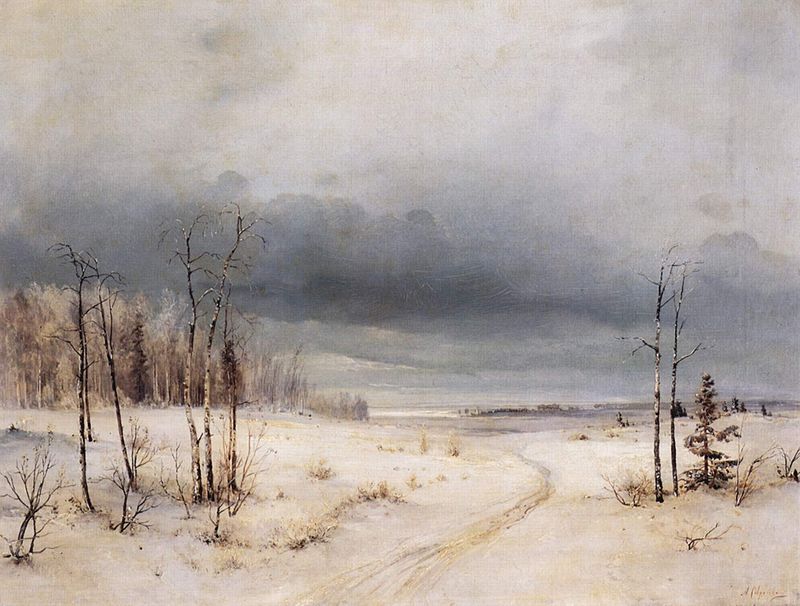
Winter (Circa 1870) by Alexei Savrásov
When we enter a writer’s work, we discern two worlds, which often seem to be overlapping and interwoven: on one hand is the writer’s gaze, her ability to perceive the nuances of the world and of life, and what has traditionally been called her “worldview”; on the other hand is her capacity to express what she perceives in the best way possible. When both worlds intertwine, much like when the warp is weaved with the weft, a fabric is created, a work of art that we call literature.
I have often chosen works because I cherish their gaze, despite knowing that they didn’t possess much literary quality. Nevertheless, among my readings are many works that were chosen because I admire and appreciate their style, where plot becomes secondary. In many of Lobo Antunes’ books, the story itself can be boiled down to just a few lines, but what bewitches me is the style: I feel sorrow when I finish reading a book, and my enthusiasm pushes me to read it again, like a child that asks to be told the same story over and over again.
In my memory, Eduardo Zuñiga, born in Madrid 100 years ago, occupies two landscapes: the civil war and the icy terrains to the east; the essay collection Desde los bosques nevados is his homage to his beloved Russian writers.
I myself feel a particular attraction towards writers from Eastern Europe and Russia. Perhaps it’s because they depict the darker side of life; perhaps it’s because their experiences of their icy terrains are closely linked to my most personal landscapes. This is why I admire so much, for example, the work of Herta Müller. I’m certain that we both try to contemplate this cold landscape from inside, through a window that shelters us, as Schopenhauer notes, from the only “warm refuge that we have in the middle of the world’s frozen night”, from our deepest and most protective interior. Nevertheless, this objective is often difficult to achieve, and we end up frozen stiff, wounded and in the open.
These days I find myself immersed in works by Onetti and I think I’ve met another inhabitant of these frozen landscapes. Last winter, I would venture outdoors on bright days, looking for some sunshine, knowing one thing for certain: that I will live many years at the side of the Uruguayan writer who loved home as much as I do, at the side of the man who masterfully interwove those two worlds into the great tapestry of literature.
This article was published in Hitzen Uberan on May 19th, 2019.